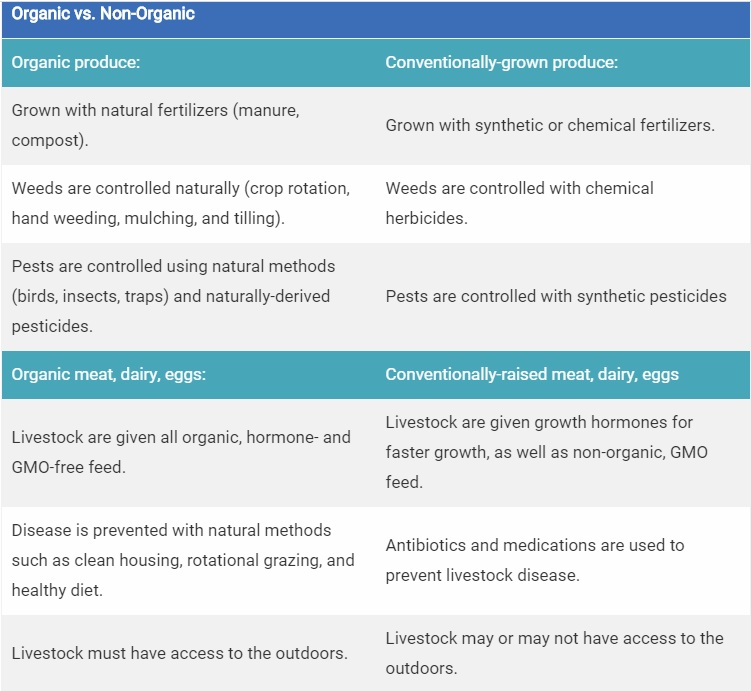What Is the Definition of Organic Food?
What are the standards for organic foods?
Have you ever wondered why certain foods are classified as “organic”? According to surveys, over half of Americans have purchased organic food products in recent years. Since Oct. 21, 2002, any food that is sold in the U.S. — whether produced locally or imported — must meet specific standards defined by the U.S. Department of Agriculture (USDA) to carry the label “organic.”
Organic foods are grown and processed differently than regular foods. The USDA definition of organic food states that:
Organic food is produced by farmers who emphasize the use of renewable resources and the conservation of soil and water to enhance environmental quality for future generations. Organic meat, poultry, eggs, and dairy products come from animals that are given no antibiotics or growth hormones. Organic food is produced without using most conventional pesticides; fertilizers made with synthetic ingredients or sewage sludge; bioengineering; or ionizing radiation. Before a product can be labeled “organic,” a Government-approved certifier inspects the farm where the food is grown to make sure the farmer is following all the rules necessary to meet USDA organic standards. Companies that handle or process organic food before it gets to your local supermarket or restaurant must be certified, too.

“Natural” vs. “organic”
While you may see labels that assert that food is “natural,” “pesticide-free,” or “hormone-free,” these terms should not be considered synonymous with the term “organic.” The USDA defines organic foods as products that are at least 95% organic according to the standard usage of the term. If manufacturers wish, they may use the USDA organic seal when marketing their products. Products that contain 100% organic ingredients may be labeled as “100% organic.” The use of the USDA seal is not mandatory, however, so you may not see the seal on all organic products.
In the U.S., the most commonly purchased organic foods are fruits and vegetables, which account for over 70% of organic food purchases. Because of the standards required to produce organic foods, these foods are generally more expensive than their non-organic counterparts.
What the research says
With many people believing that organic foods have a higher nutrient content, are kinder to the environment and livestock, and are healthier than conventionally produced foods, demand for organic produce is on the rise. However, scientists have not been wholly convinced that health claims are completely justified, as the research conducted has not shown consistent results with regard to nutrient density.
In 2009, a report published by the Food Standards Agency summarised the findings of previous studies on the comparative nutritional benefits of organic and conventional produce. It concluded that organic did not deliver significant health benefits compared to non-organic equivalents.
However, there is plenty of evidence that there are more vitamins, minerals, and omega-3s in organic produce – albeit sometimes just a small difference. A systematic review showed higher levels of vitamins and antioxidants in some (though not all) organic fruit and vegetables as well as lower levels of pesticide residues and heavy metals.

